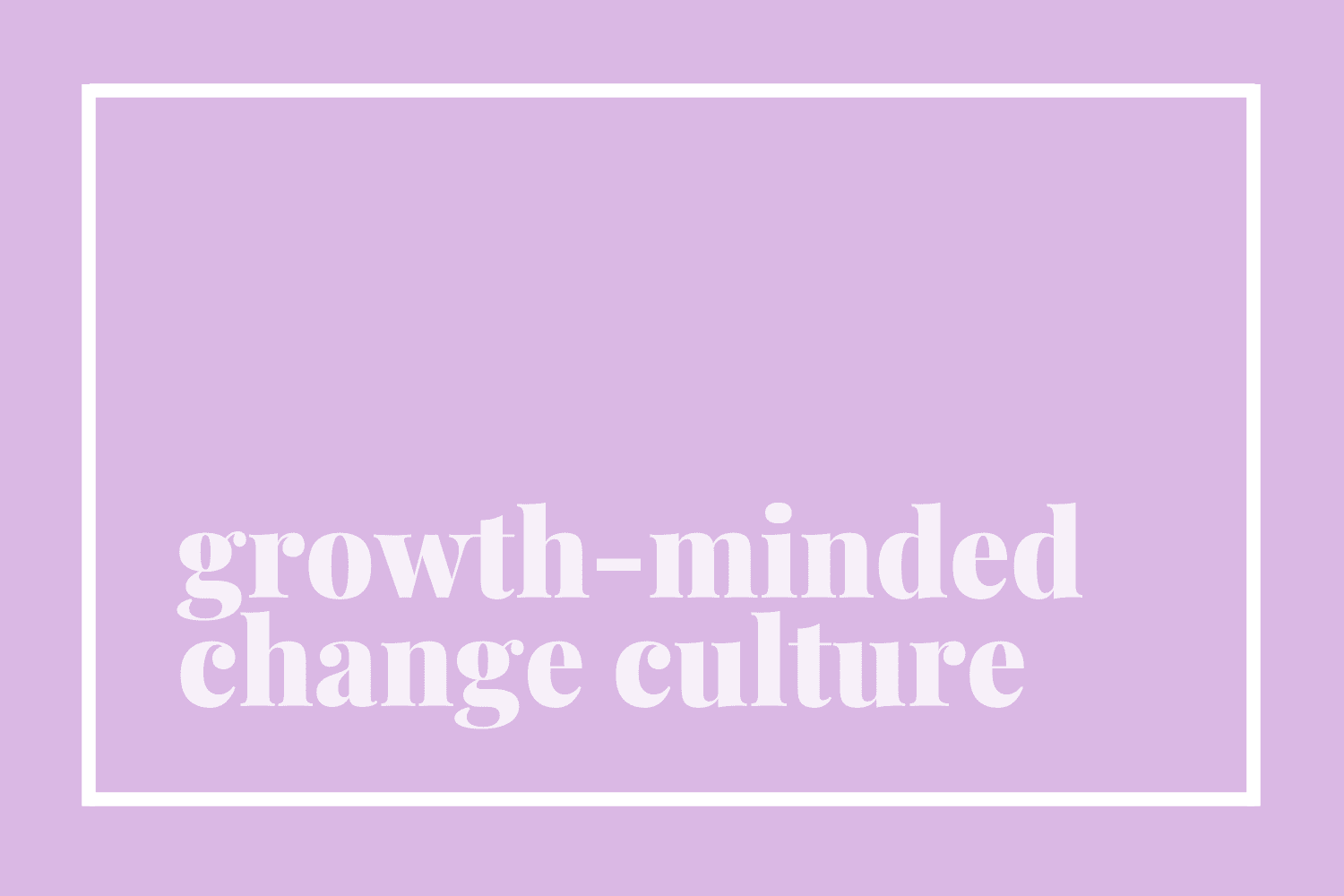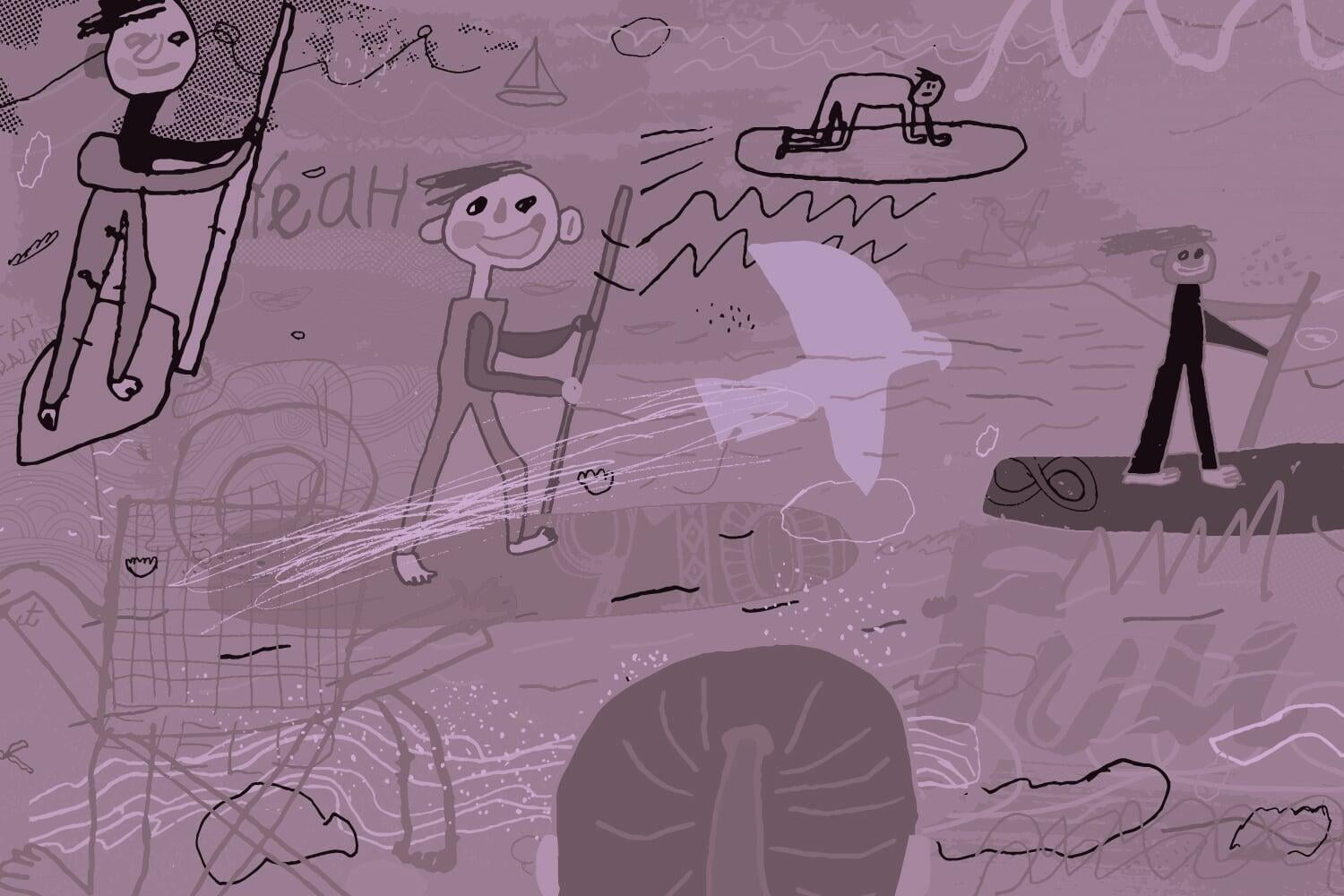
GAME CHANGERS
In a School for tomorrow. we want to inspire a growth-minded community of inquiry and practice to build a disposition for change, align decisions standards, and share in a language for learning that contribute to the progress and wellness of all. This enables all to grow to become the people they need to be and to live well in relationships built by earning their places through asking the question: where do I fit in?

LEADING TOWARDS TRANSFORMATION
The Game Changer who inspires transformation through growth-minded change culture understands the impact of a disposition towards learning, progress and transformation on how the members of a community relate to each other, work together, and how they achieve success in their mission to prepare graduates with the character, competencies and wellness to thrive in their world.
A disposition for learning in a School for tomorrow. is about the willingness towards and trajectory of change for learners within an educational organisation. It’s also about the underlying growth of all contributors to the community of inquiry and practice that allows this.
We need to help learners find a voice with which we can contribute positively and meaningfully among and through these relationships. To this voice must be added agency, so that ideas can be put into action to be tested and refined over the course of life to determine their impact on others.
Children expand their understanding of becoming an adult by acknowledging and taking responsibility for their interactions with others and the impact that this has on them. They seek answers to the question “Where do I fit in?” as they transition from the early years of life in their families to the natural process of seeking their own places in the world. Little children learn about becoming a good person from their family; bigger children and young adolescents learn about this from their friends. They engage in their own intentional and reflective communities of inquiry and practice which are most typically focused on the relationality and close friendships which are appropriate to their age and stage.
Our research tells us that while learners want to have fun with their friends, they are also motivated to learn from and with them; they rely on each other and indeed need one another to bear witness, to practice and to try out what it means to be a good man. They grow in character especially through their engagement in the whole life of their school and the community in which this is based.
In other words, the context of values, beliefs, history and traditions really matters in leading culture. We derive this context most significantly from our community. We need to understand where and who we have come from if we are to move forward with success. This does not mean we remain in the past and default to the status quo; we can pay respect for what was, keep what remains relevant, and develop new solutions to help us to chart our way with progress. We can also develop the openness that acknowledges the new and the different for the potential that they have to add to the quality and richness of our lived experience. We can also develop the strong humility and gratitude that say that nothing comes to us by entitlement or of course. We have to earn our place.
The challenge for all of us is to equip learners with the character and competencies to thrive in their world. The present and future complexities of our world call on all of us to take action individually and collectively in the long term to arrest the alarming trends about which science warns us and politicians argue. There is much that we must prepare for on a global scale, while also attending to the everyday matters of life: relationships, family, education, jobs, housing, and so on. There are both practical and philosophical implications for how we learn within and from community and why we make the choices we do about how best to prepare ourselves to live and be well. Wellness is how we experience health and happiness in the world.
Our wellness (or how well we feel) is influenced by our health – physical, psychological, emotional, and spiritual, our satisfaction with the lives we are leading, and the sense of purpose and connectedness we have. Our character is directly affected by our wellness; how well we are is so very important to how we live our lives and who we are becoming through all of our social relationships and educational experiences on our pathways to excellence.
The journeys of our students toward character, therefore, need to connect the development of their voice, agency and wellness to the essential questions that they all have and point them towards a way to find answers to them. The power of this inquiry to help them all to live better lives, to help them feel as though they are making a difference in the world, to help them to know that they are getting somewhere, must be sourced in the message we use to talk about it. It must be so significant, so rich, and perhaps even so disruptive of their frames of mind, that it compels them to sit up and take notice. It must force them to want to do something about it. It must make them commit to a journey of learning towards character, to find their way on The Pathway to Excellence. They help them to realise that it’s not about any one person – it’s about us and how we live together well.
“The culture work that sits at the heart of a School for tomorrow. is the articulation and application of school’s whole program of education to build capacity in character and competency. We see this in the development of rigour in evidence-based and research driven learning, the richness in relationships and the cultural capital that arises from them, the strategic depth and distribution of leadership, and the performance that arises from the shared work of the community of inquiry and practice.”
Dr Philip SA Cummins and Bradley Adams
LEADING THE CULTURE WORK
As leaders of culture, we need, therefore, to be prepared to make good decisions about and on behalf of our students, their families, and the community when this time comes. There are typically five qualities that can be identified in a School for tomorrow. goes about working out what to do and how to do it:
- Future-focused: are decisions emerging from an inclination to move forward to meet the needs of the future?
- Character-rich: are decision-makers considering the ways in which any and all decisions both model and promote the desired 21C character and competency for students and other members of the school community?
- Action-oriented: are stakeholders committed to taking both the initiative to act and ensuring concrete actions to improving outcomes (especially student outcomes)?
- Inclusive and empowering: do decision-makers look to make decisions in the best interest of the voice, agency, and wellbeing of “every” and “each” stakeholder and particularly the students – in other words, is there an emphasis on generating successful experiences and outcomes for individuals on personalised pathways as well as serving the needs and culture of the institution as a whole?
- Reflective inquiry: do decision-makers habitually ask searching and meaningful questions while moving through one of a number of well-rehearsed and considered multi-stage process that ask them to contemplate context, balance the best of external research with internal evidence of impact, generate a range of options, and select the best available course of action to achieve the task at hand?
A further key element of the culture of a School for tomorrow. is its disposition towards testing the quality of its decisions and warranting the integrity of its practice, particularly in the light of the research about how communities of inquiry and practice in great schools operate. We believe schools and their teachers should warrant their practice according to these principles. This should include validating the quality and consistency of the delivery of graduate outcomes based on character and competency, as well as the essential processes by which a school might attain them, including the depth of investigation into the idea of character, the immersion of character leadership in every part of the school, the richness of character apprenticeship as the key pedagogy for the learning experience, the shared discipline in delivering excellence in learning experience and outcomes, the success in cultivating emerging student voice and agency, and the rigour of teacher professionalism. How teachers and leaders build a case for and warrant their practice in respect of these provides the critical accountability for ensuring the continuing presence and evolving nature of culture in a School for tomorrow. that is focused on building the adaptive expertise and self-efficacy of learners who are equipped to thrive in their world.
Our leadership purpose must be centred on building a healthy school culture. Our focus in this respect must be on the fundamental purpose of the school – designing and delivering an education for character, competency and wellness. As growth-minded change leaders who are seeking to recognise and enhance the common humanity of all involved in the enterprise of the school, we need to know how to build and work well in teams. Our leadership competency in this respect revolves around strengthening. The starting point is thinking about how we strengthen a school is through the character we show – in particular the quality of our integrity. John Kotter, a leading thinker about change and change management in the world, talks about the importance of ‘Leading Forward’. The people at the top of organisations need to help other people conquer their natural fears and expand leadership capacity throughout the organisation. This is not about a hierarchy of any sort – these people need to be dotted all through organisations and they help people take the imaginative leap forward in what they do. Leading through character adds to the value of a school. This is characterised by the way we work towards embedding shared values in a culture with a clear and meaningful core of civic character, performance character, and moral character. Our leadership capability should reveal us to be purpose-driven and disciplined leaders. We should demonstrate the character, competency, drive, and passion for responsibility to lead by example. We should enact suitable, practical and sustainable leadership principles to meet team, task and individual needs and goals. We should model high standards of personal and professional discipline, especially in the face of adversity, and we should enhance team members’ self-discipline and collective discipline to achieve high standards. We need to focus more on outcomes, the long-term sustainability of the team and achievement of a shared purpose rather than on leadership style or details of those tasks which we might routinely delegate to other team members.
From our research, we would argue that promoting holistic growth-minded change culture and the organisational maturity of the school is essential to long- term sustainability and achievement of the shared purpose of an education for character, competency, and wellness. We believe there to be six areas of a School for tomorrow. about which we should develop an intimate knowledge of how best to influence growth to inspire people to nurture the culture that we want: promoting character, climate and culture; leadership of the educational program; teacher effectiveness in growing the whole person; student educational experiences and outcomes; strategic and operational alignment; teacher professionalism in a community of inquiry and practice So much of this comes down to the doing of the culture work. We have talked elsewhere in Game Changers about the work of Robert Kagan and Lisa Laskow Leahy, who establish that change within organisations is really about adult learning. If adults are going to learn, we must start with convincing the heart before we try to convince the head. In other words, we need to capture the hearts of people before they’re going to follow us cognitively and then do the thing that needs to be done. We need to allow people time to do this and to grow in this way in a non-threatening fashion. The authentic culture of a School for tomorrow. can be traced back to how we lead a community towards a shared disposition to ask questions that challenge the status quo, develop answers that reveal a shared language of learning, and the capacity to define a strategy that is singularly focused on improving outcomes for more learners who have the adaptive expertise and self- efficacy to thrive in their world. It requires all to be inspired by a growth-minded culture of continuous learning and change. And to do this together, as a community who relate well to each other in pursuit of their shared goal of transformation of themselves, of each other, and of the community as a whole. That’s the true work of the leader who inspires growth-minded change leadership.

SCHOOL COMMUNITIES
We are convinced the future of school is community. A genuine strategy for community engagement considers it from the perspective of the community members themselves, rather than just prescribing a range of activities that may or may not meet the specific needs of people for connection. Applying the right thinking as to how to connect with and engage members of a community is the work we all need to be doing in schools to ensure that we are authentically understanding the needs of the communities which we serve...

GROWTH-MINDED CHANGE CULTURE
A high-performance culture comprises all we do to make real the promise of an excellent 21C education – it is “the culture work”. This is a confluence of process and product towards a desired set of results that exceed that which has come before. It is most successfully constructed within the formal and informal structures of an evidence-based community of inquiry and practice...

A SCHOOL COMMUNITY THAT PERFORMS
Culture, led by strategy and fostered in relationship, is the driver of the performance of the students, the programs and the community of a school. A vision for excellence is required to help the members of the community know what it is that they should be aiming towards. A shared narrative that engages the community in its journey from yesterday to today to tomorrow asks each stakeholder to think about the efficacy of the school in producing the desired results: a whole person grounded in an experience of excellence and prepared by a partnership between schools and families to thrive in their world equipped with the character and competencies to do so...

KNOWING THE WAY TOWARDS GROWTH-MINDED CHANGE CULTURE
Knowing the way of cultural strategy is about focusing on the right things that make a difference: the right standards, assumptions about student potential and the community of inquiry and practice that supports these. As well, it is about building cultural focus. This involves establishing and enhancing the role of aspiration and performance within the community: does the school understand how to make 21C learning the core of its strategic intent?...

AN EDUCATION TO BECOME THROUGH COMMUNITY
There is much that our students must prepare for on a global scale, while also attending to the everyday matters of life: relationships, family, education, jobs, housing, and so on. There are both practical and philosophical implications for how we do education in school communities and why we make the choices we do about how best to prepare students to live and be well...

GOING THE WAY TOWARDS GROWTH-MINDED CHANGE CULTURE
Going the way towards growth-minded change culture in a school is largely a process of building cultural capital. Building character capital is a key role of civic, performance, and moral character leadership. We believe that character capital relates particularly to the value of the feelings and perceptions held by the school and wider communities about the character purpose and character strengths of a school...

A LEARNING COMMUNITY THAT GROWS TOGETHER
So much of the individual and collective adaptive expertise and self-efficacy in a learning community is driven by the sharing of a culture of growth minded change culture, one that is inspired, supported and challenged by leaders who want more for learners. The highest performing of those learning communities which we call “schools of character” demonstrate a shared vision and vocabulary for their preferred future, an agreed value proposition for what the school delivers, and change whose velocity, shape, and trajectory have all been designed and implemented to attenuate the demands and pressures of the school’s external and internal contexts...

SHOWING THE WAY TOWARDS GROWTH-MINDED CHANGE CULTURE
Understanding who you are as a leader is as much about defining your sense of purpose as anything else. For it is through our sense of mission that we are most formed in terms of our leadership practice. Our beliefs about what is important and what should be done about these things that drive our compelling narrative, the reason why we do what we do. Leaders show the way forwards by doing the culture work personally, tactically, strategically, and globally...